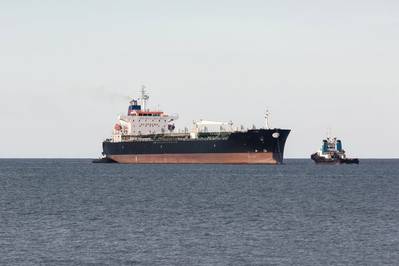Buyers Seek US Waivers to Buy Iranian Oil amid New Sanctions
South Korea said on Wednesday it would seek U.S. exemptions to buy Iranian oil, a path many big oil consumers are likely to follow in the wake of new U.S. sanctions on Tehran, which will tighten world oil markets and push up prices.
Iran is the third-largest oil producer in the Organization of the Petroleum Exporting Countries (OPEC) and a key supplier, especially to refiners in Asia.
The United States plans to impose new unilateral sanctions after abandoning an agreement reached in late 2015 which limited Iran's nuclear ambitions in exchange for removing joint U.S.-Europe sanctions, which included strict curbs on crude oil exports.
New U.S. sanctions will include measures aimed at its oil and shipping sectors, with a six-month "wind down" period "to allow companies to end contracts, terminate business, (and) get their money out", according to the U.S. State Department.
"President Trump is clearly articulating that he has minimal desire in an alternative agreement with Iran," said Ehsan Khoman, head of research for Middle East and North Africa at Mitsubishi UFJ Financial Group.
During the last round of sanctions, Iran's oil supplies fell by around 1 million barrels per day (bpd), but the country re-emerged as a major oil exporter after sanctions were lifted in January 2016.
Since then, Iran ramped up supplies, producing 3.81 million bpd in March 2018, almost 4 percent of global output. Its crude exports averaged over 2 million bpd in January-March quarter this year.
Analysts now expect Iran's supplies to fall by between 200,000 bpd and 1 million bpd, depending on how many other countries fall in line with Washington.
South Korea and Japan
South Korea's Ministry of Trade, Industry and Energy said it planned "to minimize the damage" to its companies, adding it would seek an exemption from sanctions. Japan may follow suit.
"Japan and South Korea may comply with the proposed U.S. reimposition of Iranian sanctions on the concern of losing the U.S. security umbrella vis-à-vis North Korea," Khoman said.
Trade data already show a reduction of Iranian oil supplies to Japan and South Korea, and refinery sources confirmed they had started shifting purchases in preparation for renewed sanctions.
Iranian crude oil shipments to Japan and South Korea have fallen by half from their post-sanction peak in March 2017, hitting just over 300,000 bpd in April, according to ship tracking data.
China and India
The biggest single buyer of Iran's crude is China, which imported about 900,000 bpd in mid-2016 but has scaled back shipments to around 600,000 bpd in 2018.
A senior official with a Chinese oil major, who declined to be identified because he is not authorised to speak to the media, said new sanctions would hurt Chinese refiners by pushing up the price of crude.
Benchmark Brent crude hit its highest since November 2014 on Wednesday at over $77 a barrel.
China's response to the U.S. sanctions is unclear. Beijing has opposed the U.S. move and many Chinese companies may continue to buy Iranian crude, analysts say.
And Chinese refiners say there are alternative suppliers, including Russia, Saudi Arabia and exporters in West Africa.
In India, another major buyer of Iranian oil, refiners hope they can continue importing Iranian oil.
During the last round of sanctions, India enjoyed waivers allowing limited Iranian oil imports paid for in rupees instead of U.S. dollars.
"The impact (of new sanctions) in India will be there, but not so high," said R Ramachandran, head of refineries at state-owned oil firm Bharat Petroleum Corp.
When sanctions were loosened against Tehran in 2016, India ramped up imports from Iran to almost 900,000 bpd in late 2016, but intake has fallen back to around 500,000 bpd this year.
The threat of new sanctions comes as demand in Asia, the world's biggest oil-consuming region, hit a record and producers, including Saudi Arabia and Russia restrict supply to prop up prices.
As a result, crude oil inventories in major developed nations have fallen sharply in the last year and a half to 2.85 billion barrels, only slightly above their five-year average.
Trying to ease market concerns, Saudi Arabia said on Wednesday that it would work with other producers to diminish the impact of any shortage in oil supplies.
(Reporting by Henning Gloystein, Jessica Resnick Ault and Osamu Tsukimori; Additional reporting by Stephanie Kelly, Dmitry Zhdannikov, Jane Chung, Aizhu Chen, Florence Tan, Nidhi Verma and Promit Mukherjee; Writing by David Gaffen and Henning Gloystein; Editing by Simon Webb, Cynthia Osterman, Gerry Doyle and Christopher Johnson)











